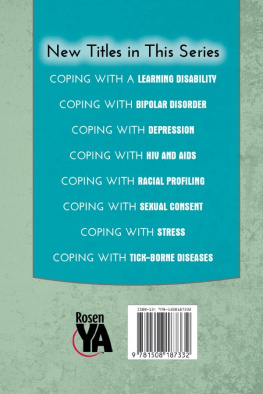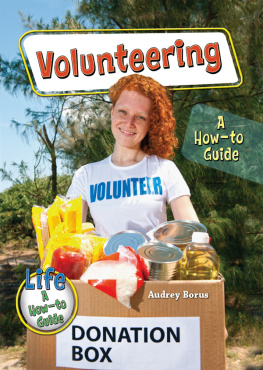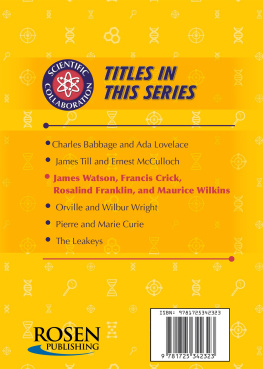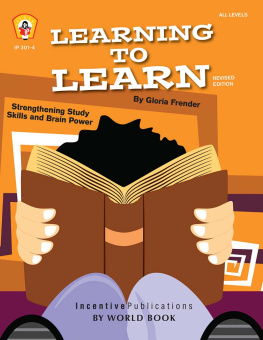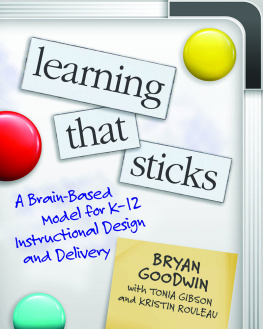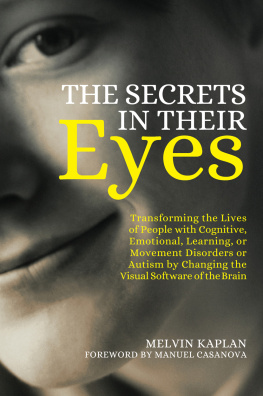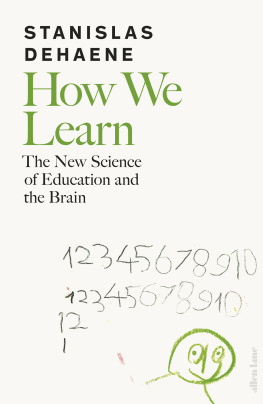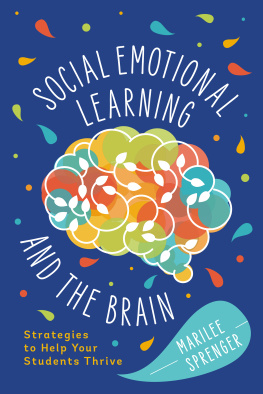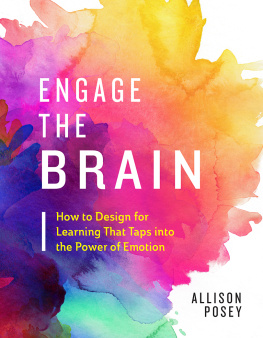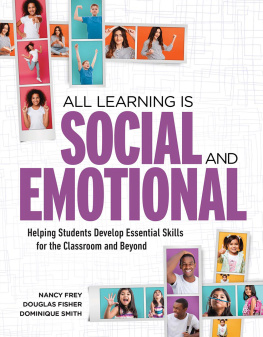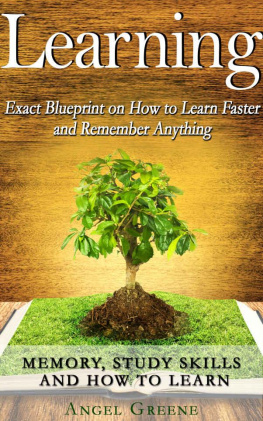
Published in 2020 by The Rosen Publishing Group, Inc.
29 East 21st Street, New York, NY 10010
Copyright 2020 by The Rosen Publishing Group, Inc.
First Edition
All rights reserved. No part of this book may be reproduced in any form without permission in writing from the publisher, except by a reviewer.
Library of Congress Cataloging-in-Publication Data
Names: Borus, Audrey, author.
Title: Coping with a learning disability / Audrey Borus.
Description: First edition. | New York: Rosen Publishing, 2020. | Series: Coping | Includes bibliographical references and index. | Audience: Grades 712. Identifiers: LCCN 2018050785| ISBN 9781508187349 (library bound) | ISBN 9781508187332 (pbk.)
Subjects: LCSH: Learning disabilitiesJuvenile literature. | Learning disabled teenagersEducationJuvenile literature.
Classification: LCC LC4704.74 .B67 2020 | DDC 371.9dc23 LC record available at https://lccn.loc.gov/2018050785
Manufactured in the United States of America
CONTENTS
INTRODUCTION
W hen he was in second grade, Dan Spencer was diagnosed with two learning disabilities. According to Spencers essay, Outsmarting my Disability: From Struggling Student to Conservation Educator on the US Fish and Wildlife Pacific Region website, it was already obvious that he was less than efficient when it came to completing any reading or writing in class. He says he literally hid under his desk when the teacher called on him to read aloud. And I wasnt just last to finish the test; I trailed the next to last by a solid 10 to 30 minutes. It seemed obvious to me back then that I was not only different but stupid. To make matters worse, specialists often pulled Spencer from gym to tutor him. And gym was the one place he excelled and could work off energy.
Spencer got through high school thanks to his parents and frequent academic support, and went on to college. But he was convinced he wasnt very bright. During his first year in college, Spencer says he became aware of how learning disabilities are diagnosed and what it means to have one.
Spencer realized that the difference between what he could do (his IQ) and his academic achievements (his grades and test scores), meant he had a learning disability. He wasnt lacking in intelligence, his brain just took in, analyzed, and communicated information differently. This made it difficult to learn by traditional methods. Soon he even realized his learning disorder (LD) could help him think in new and interesting ways that others might not consider.

When you have a learning disability like dyslexia, reading can often seem like an impossible task. But there are ways you can cope and go on to succeed in life!

School can be difficult for those with learning disabilities. But help is available. There are strategies and ways to work with a learning disability to make academics easier.
If someone had told Spencer in high school that he would earn high honors in Biology, he would have laughed. If someone had told him hed become a conservation scientist and educator, he would have told them they were crazy. But despite academic setbacks, Spencer did those things. He was able to achieve so much in large part because he learned to view his disability differently. He was able to realize his cognitive potential.
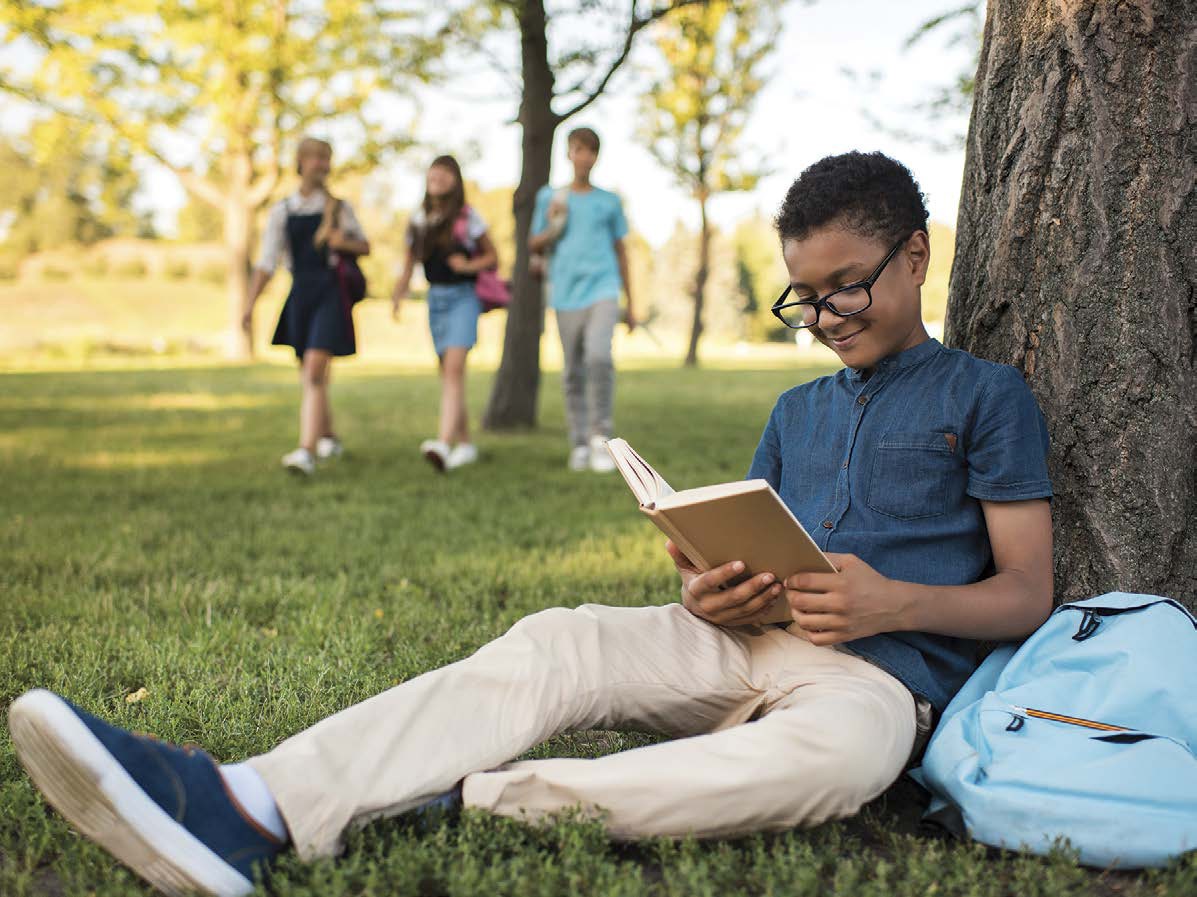
One of the best ways to understand learning disabilities is to become informed about them. There is a great deal of information available online, from doctors and counselors, and in this resource!
As in Spencers case, addressing a learning disability starts with becoming informed. Understanding how the brain works and the biological basis for learning differences is a start. According to the National Center for Education Statistics, nearly 2.3 million public school students have been diagnosed with specific learning disabilities. Learning disabilities are a neurological condition that interferes with an individuals ability to store, process, or produce information. Learning disabilities affect a persons ability to read, write, speak, spell, compute math, and reason. Specific learning disabilities also affect attention, memory, coordination, social skills, and emotional maturity.
If you are reading this book because you have a learning disability or know someone who does, you are taking a positive step. By becoming informed and learning about available resources, you will be empowered, like Dan Spencer, to make the most of your intellectual potential.
CHAPTER ONE
What Are Learning Disabilities?
I n a scholarship acceptance speech at the National Center for Learning Disabilities (NCLD), Hannah Pintado remembers:
From first grade I knew something was wrong. First grade is the year children tend to learn how to read fluently. I noticed that the other students were able to read faster than me and fly through questions. By the time I finished a story, I could not even understand what it was about. The worse part was that even though I read the passage several times, everyone thought I didnt read it and was dumb.
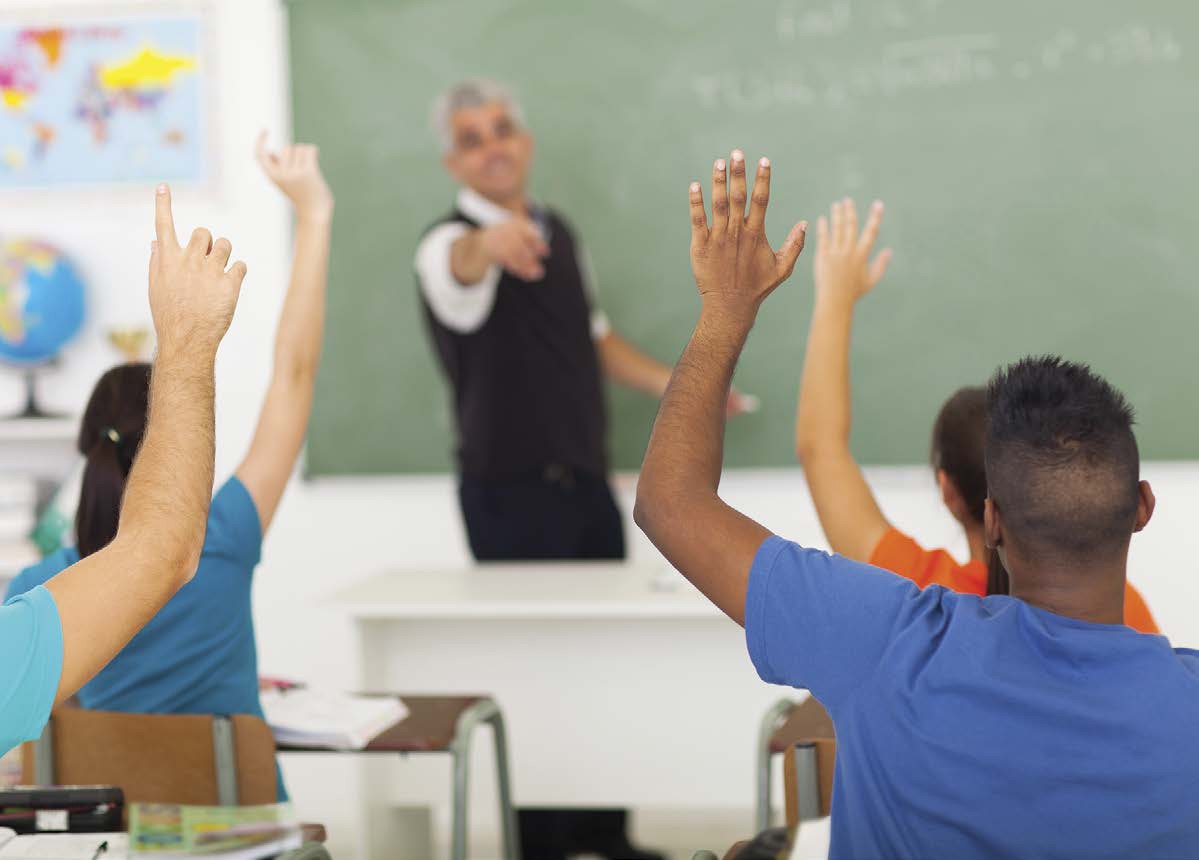
For a person with a learning disability, volunteering in class can be scary and intimidating. Because those with learning disabilities process information differently, it can be hard to keep up.
Pintado was born with a learning disability that affected the way she learned to read. Her speech describes the way a lot of kids with learning disabilities feel when they are growing up: confused, alone, and not very smart (even though in many cases students with learning disabilities have above-average intelligence). Though they look the same as everyone else, they feel very different.
In a way, this is true. People with learning disabilities are different. Something in their brains makes it hard for information to flow freely. According to the National Institutes of Healths About Learning Disabilities web page, learning difficulties are conditions that affect how someone learns to read, write, speak, work with numbers, coordinate movement, or direct attention. Scientists believe that these difficulties are a result of differences in brain structure that affect the way someone processes information.
But finding an exact definition for the term learning disability is hard because no two people are exactly alike. Acquiring knowledge is a unique process for every student. Like all students, kids with learning disabilities have their own strengths and weaknesses. Some struggle with multiple areas of learning, like reading, math, and following directions, while others may have only one real learning challenge. Experts acknowledge that even though learning difficulties can be categorized, labeling doesnt necessarily make diagnosis easier.
People with learning disabilities do not outgrow them. While most people develop strategies for coping with their weaknesses and playing up their strengths, learning disabilities do not go away. The cluster of symptoms underlying your disability do not disappear as you get older, so its important to learn how to deal with it.
Next page
